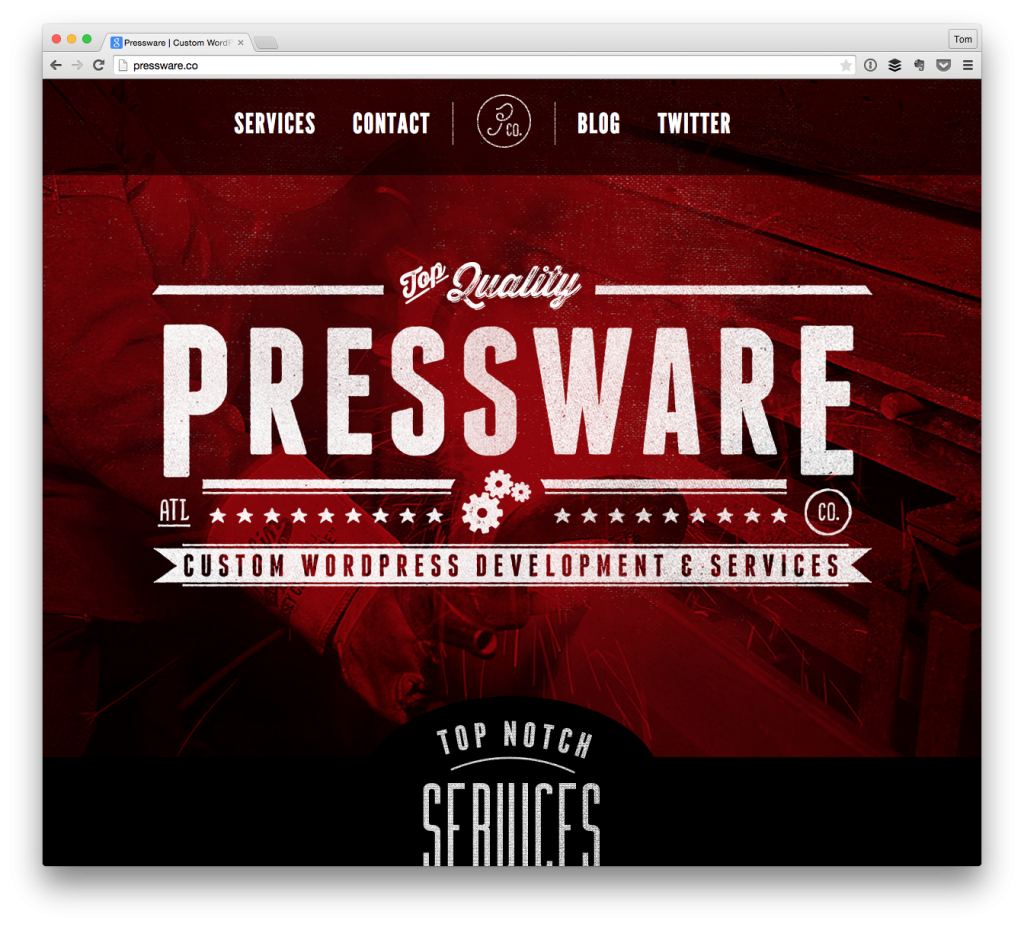Self-employment, freelancing, and/or contract work can be a funny thing especially if you’re a one man shop. I think that the freedom that comes with working alone has its benefits – I mean, you’re running the whole show – but it also has its drawbacks – you’re running the whole show.
By that, I mean when it comes to working on contracts for others, there’s a lot of satisfaction to be found is providing solutions for them, but it’s also a lot to juggle behind-the-scenes (payroll, accounting, expense reports, etc.).
And yes, I absolutely recommend finding people who are skilled in that area and then paying them to take care of that stuff for you (after all, it’s what they like to do) so that you can focus on what you like to do.
But that’s just one aspect of what it means to running your own business and it’s not the aspect that I’m interested in talking about right now.
What about the part where you start growing your business? Or the part where you’re looking to partner up with someone else or have additional contractors or employees come on board so that you can expand what it is that you offer?
As exciting as that can be, it also carries its nuances, as well.
Growing a Business in WordPress
It’d be far easier to speak in generic terms than to talk directly about Pressware because I could avoid talking about any personal opinions or challenges, but it’s likely far more accurate and signiicant if I talk about all of this from my own experience.

As mentioned in other posts, I’ve been doing contract work for other people since I was in college and I’ve found it to be extremely fulfilling. I consider myself very lucky to have been able to convert that into a full time career and I honestly consider it a bonus that I get to do so with WordPress.
At some point (read: multiple points), the thought of growing the business has crossed my mind. Actually, it’s crossed my mind more than once. And though I’ve worked with other people on a few projects throughout my self-employed career, I’ve not actually added a permanent person to Pressware.
Honestly, the majority of the people with which I’ve worked have been gainfully employed – either by someone else or by themselves – and are happy to work together on a project for the sake of breaking up their normal routine.
But they also love their own business – and why wouldn’t they – so they aren’t looking to shift gears or anything like that.
That’s not necessarily growing a business, is it? That’s basically hiring temporary help. And that’s great, but it’s something that’s completely different.
What Does It Even Mean To “Grow a Business?”
I bring this up because I think each of us has varying ideas on what it means to grow a business. This may depend on the type of business you’re in, how you generate revenue, and all that fun stuff that other people like to talk about.

For me, though, it’s generally about the idea of taking on larger projects. And in order to take on larger projects, you need to have a team to divide the work. This way, you’re simply able to take on said projects and complete them in roughly the same amount of time by dividing the work.
Clearly, this is not a novel idea. I know, it’s a simple concept. I’m not trying to be profound. I don’t think I could if I tried.
What I’m trying to define, though, is how I view “growing a business” from the perspective of someone who’s been self-employed for roughly half-a-decade and has been toying with the idea of expanding beyond himself.
Finding The Right People
The challenge, though, is finding the right people (and “the right people” is all relative). In the case of building solutions for other people using WordPress, this can usually consistent of some of the following:
- If you’re looking to hire someone to do design work, then you may need to have someone who understands how WordPress works in terms of its templating system so that they can provide designs that are adaptable to said system.
- If you’re looking to hire a front-end developer, they should have an understanding of how WordPress templates work, a basic understanding of The Loop, CSS (or, these days, perhaps Sass), and maybe even a basic understanding of jQuery.
- If you’re looking for a back-end developer, then the person should have a deep understanding of WordPress hooks, procedural programming, and possibly object-oriented programming (which may include namespaces, autoloading, interfaces, abstract classes, etc.) if that’s how you go about building some of your custom plugins and/or back-end work.
And sure, there’s plenty of other things that you can add to this list. For example, you may want to talk about linters, dependency management, and so on (this could be a series of posts all its own).
All of that great is great – this isn’t meant to be exhaustive by any means – but it’s meant to show the types of things I’ve been considering when looking for others to work on projects with me.
The Challenge of New People
So have I found the right person? Up to this point, I’ve been incredibly fortunate to work with some great people but I’ve not actually sought out having anyone permanently added to the team.
That doesn’t mean I don’t consider it, but I am taking my sweet time in terms of deliberating on the topic. Or maybe I’m procrastinating. Or maybe I’m taking my time in thinking through it. Maybe I’m doing both.
Who knows. I digress, for now.
Anyway, Andy Adams and I have been working on a project for a client and we’re implementing the solution through a combination of a custom theme, custom plugins, existing plugins, and other custom implementations for the overall solution.
Here’s the challenge of working with new people:
Usually, when you begin working with someone new, they have a way that they’ve historically gone about managing their projects and you have your ways that you’ve gone about managing your projects.
If a person has been successful in running their own business, there’s no right way or wrong way in terms of how they’ve been doing so, but it may cause some managerial hurdles when you begin to work together.
That’s fine – and it’s completely normal. In fact, one of the conversations Andy and I recently had went something like this:
I don’t think the experience is worse. I’m fine with leaving it as-is. I just wanted to understand it, primarily to make sure we weren’t operating on different understandings of how functioned.
The way I see it, we’re still learning the ropes of how we operate together so this is all natural hurdles IMHO.
My point? When you find “the right person” (however that may look for your particular business), there are going to be hurdles that you’re naturally going to run into when working together.
When you reach that point, it’s not about fighting to get your way, but it’s about understanding where one another is coming from, weighing the pros and cons of each approach, and then going the route that’s not only best for the project, but best for the team and for the business.

Unfortunately, this is something that can ultimately cause a lot of tension between people and even result in projects grinding to a halt. Bummer, right? Especially when you can actually use the opportunity to learn from one another on how and why each of you are approaching a problem in a specific way.
This Will Look Different For You
If you’re in the business of WordPress (or even if you’re not) and you’re looking for advice on growing a business, this post is likely not the prescriptive advice that you were hoping to find.
In fact, I’d even be surprised if you read it this far.
But the point of me sharing this is because, at this point, I’ve been self-employed longer than not and I’ve had to learn a lot along the way.
I’ve generally played it safe in terms of the content that I share here in that I don’t talk too much about anything personal; however, I know from email, Twitter, and from other conversations that others are curious as to what it’s like to be self-employed in WordPress. To that end, I’ve opted to start sharing some of my own experiences.
Anyway, I don’t know what it will look like for you to go about growing your business, but I do know this:
- It’s important to identify what you’d consider to be the right person to add to your team.
- Be open-minded about the way another person approaches problem-solving. Talk through solutions and learn from one another. Don’t write one another off.
- Be open to the idea that the person you’ve opted to work with may not be great for future work, but be open to the idea that maybe they are. Just because it’s not your way doesn’t mean it’s not a good (or even better) way.
Ultimately, you need to have a deep understanding of your own business, the types of problems that you’re looking to solve, and making sure that the people or person you want to work with has the technical chops to come on board and continue bringing the project along further, faster.
I think the technical chops are the easy part. It’s being open-minded to what other people – especially those who are likely smarter than you – may bring to the table that can help make you and your business better.

